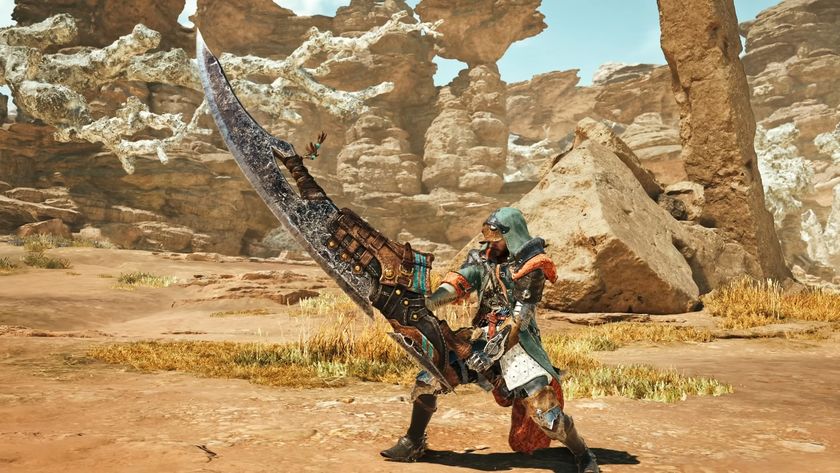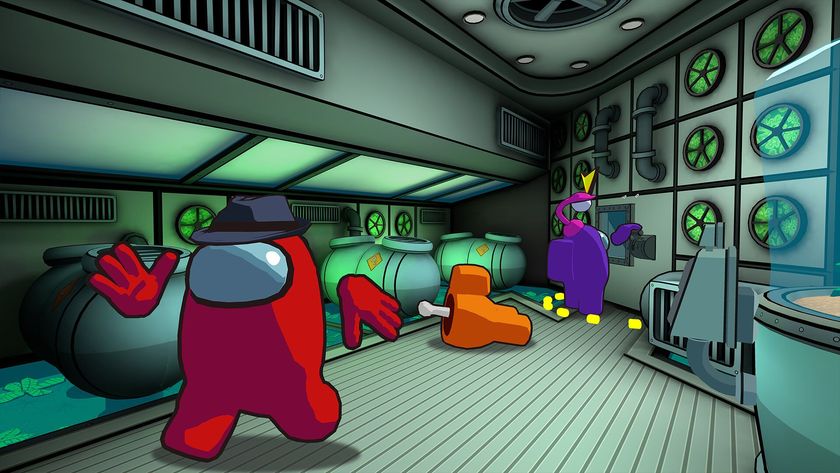Questions you weren't supposed to ask about video games
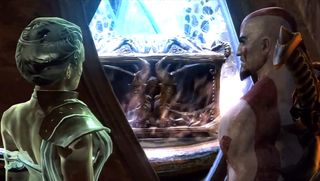
Questionable
It's normal for games to take liberties with reality once in a while, and picking at a scratch in the story until it turns into a gaping wound doesn't do much for anyone's enjoyment. It's good to understand that little mistakes are going to happen; that way you won't be disappointed, and choosing your believability battles is always smart.
But other times--oh, other times--this issues appear that seem to expand on their own. Look at them too long, or watch them stretch throughout a level, a game, a franchise, and they can sap your attention until it's hard to think about that game at all without wondering: but why? Here we have the Top 7 biggest plot holes in recent gaming; gashes that spread beyond just one moment to infect the whole story. Is there a plot-doctor in the house?

Why do you black out when all of your Pokemon faint?
When a Wiki dedicated to a gaming franchise says the reason for a mechanic is "unknown", you know looking for a better answer is a lost cause. Such is the case with Pokemon: even its most dedicated, encyclopedic fans cant dig out a good reason for why your character blacks out (or "whites out", whatever that means) when all their Pokemon faint in the midst of battle.
Some players have tried to invent answers of their own with questionable success. Maybe the other trainer has their Pokemon beat you up because they're comically evil. Maybe you have a psychic link to your Pokemon that causes you to feel their injuries, which makes one wonder if fantasy dog-fighting is really for you. There's no precedent for it in the Pokemon anime either--barring trainers and Pokemon getting attacked by the same flock of Spearows, humans turn out no worse for wear when they lose a battle. Sure, you can just admit the game needs an excuse to zap the trainer out of there, but where's the overly-analytical fun in that?
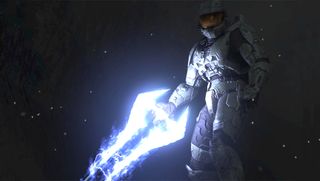
Why aren't the humans using Covenant weapons more often in Halo?
The events of the Halo series have intensified exponentially with every passing installment. Even the standing conflict between humans and Covenant has sharpened, since later entries reveal that humans have been fighting for survival against the alien scourge for 30 years. In that time the humans have been horribly outclassed, with settlements falling left and right to the Covenant's superior military. It seems humans just don't have the resources necessary to put up a strong front.
Only, wait. Master Chief can get his hands on Covenant weaponry within the first hour of Halo, and loads of other alien technologies are well within his reach. If Covenant military resources are so great, how are humans not taking advantage of it where they can? And not just by borrowing an occasional gun--XCOM: Enemy Unknown focuses on a similar alien menace problem, and part of the human response is to research enemy tech to build up a stronger defense. That makes sense, right? That's the right response. If that happens in the Halo universe we never see it, and human military failures keep being blamed on inferior technology.
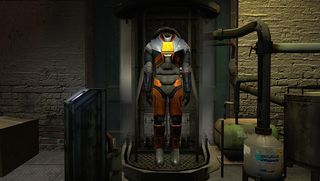
How does Gordon survive without a helmet in Half-Life?
Gordon Freeman graduated from MIT with dual-degrees in quantum physics and being a badass. His ability to survive ridiculous damage is helped along by his HEV suit, which is equally sturdy against bullets and nuclear radiation alike. It eventually becomes a running joke how frequently he's put into perilous situations because "at least you have the suit, Gordon!" For the most part you don't feel the need to question how the suit does any of this--it's science magic, whatever. But then, there's no denying the one glaring problem that keeps rearing its ugly head: where the heck is the helmet on that thing?
And I'm not just saying "he'd have gotten shot in the face by now", either. Not wearing a helmet on an HEV suit completely compromise the suit's purpose. If Gordon's tromping through toxic waste that has his Geiger counter going nuts, how is he protected with his entire head exposed? Shouldn't he protect his head better? How are you going to do science without it? I don't care if the other kids make fun of you, Gordon--you need to wear a helmet.
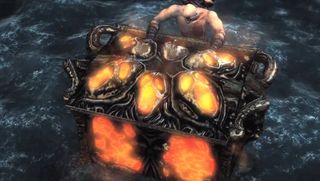
Why does Kratos go hunting for a power he already has in God of War?
Kratos is the best killing machine the gods could have asked for, like a Swiss army knife of death, and he hits max level when he opens Pandora's box and absorbs the god-killer powers contained within. He uses these on Ares, then resolves to kill Zeus. That in mind, he seeks out the key to open Pandora's box and... wait. Hold on a second.
Effectively, in God of War III, Kratos goes on a quest to retrieve an incredible power that he already has. While Athena insists the power in Pandora's box now is stronger, she skimps on the how, claiming Kratos merely drew from it the first time. Except Kratos has been swimming in deity blood for three games now and can already best Zeus, so whats the point? That becomes an even better question when he opens the box and finds it empty, then finds out the power he was missing was hope. Sure, that makes sense within the lore of Pandora's Box, but in the game it doesn't really work. So Kratos just needed to... believe in himself? When did God of War turn into an after school special?
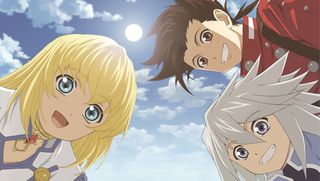
Where do the non-fighting party members go during battle in the Tales series (or any RPG)?
Alright, you know the drill--pick a few characters out of your larger band of heroes and use them to take on your enemies. You can switch out members as you like, and some games spring surprise encounters to make you use every character at least once (yes, even the annoying one), but the formula is pretty well laid out: you get a portion of your party to work with and have use them strategically.
But then... where'd everyone else go? No matter how big your party gets, this few-on-baddy configuration still trumps even when having an extra hand would be pretty useful right about now. It isnt like the sidelined folks are busy or anything either--in games like Tales of Vesperia, characters will actually complain if theyre kept out of the active party too long. That begs the question, what exactly are they doing? Crossword puzzles? Bird-watching? Sitting there taking bets on who's gonna drop first? That's not really in the spirit of teamwork, guys.

Why do BioShock's Vita Chambers recognize the protagonists when nothing else does?
Rapture is the sort of place mad scientists dream about, a city that thrives on fascinating and ethically dubious technologies. One example is the genetic key, which allows Raptures security systems to recognize the DNA of founder Andrew Ryan and his relatives. Its what keeps the protagonist Jack from being obliterated by guard bots (he and Ryan are third cousins or something, dont worry about it), until things go horribly wrong and someone else takes over, turning the citys technology against him.
That is, except vita chambers: devices that revive Jack whenever hes brutally killed. They're also coded to Ryans DNA, so you would expect they were controlled by the genetic key too. However, even after the key switch, the chambers still revive Jack, and for a neurotic like Ryan that seems like a lax setup. This makes even less sense in the sequel, where a teenage girl adjusts a chamber to recognize blatantly not-Ryan DNA and revive a guy who died years before it was configured to him. We are talking about the same paranoid, despotic Andrew Ryan here, right?

With potions and Phoenix Downs, how does anyone die in Final Fantasy?
The fact that anyone dies in a Final Fantasy games is astounding, because potions and Phoenix Downs are the most amazing medicines known to man. Characters roasted alive by dragons or munched by zombie snakes are back to normal with a potion or two, and while Phoenix Downs dont actually revive the dead (its called KO for a reason, people) they'll apparently cure brain damage and internal hemorrhaging. With these miracle cures combined, you should be able to keep casualties during your adventures near zero.
Yet Final Fantasy characters keep managing to die when an application of ointment would fix them right up. While there is something to be said for being vaporized or de-constituted, it doesnt make sense for simple stab wounds to be so lethal under the circumstances. The same characters who die in cutscenes tend to have survived worse in combat and recovered with potions, so how do their deaths make sense? Heck, Aeris probably could have survived with some application of logic--it would have been awesome to watch her stab Sephiroth with her imbedded chest-sword.
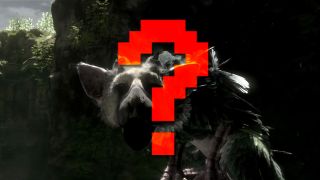
Level up?
That's our thoughts on these gaping gaming plot holes, the kind we struggle to figure out long after the credits roll. Still, one gamer's obvious discrepancy is another's clearly defined answer, and you may be able to fashion a better explanation for these than we ever could. How do you explain away these plot holes? What are some other franchise-spanning snags that should have made the list? Tell us in the comments below, and remember that "because the devs said so" is as boring as it is true.
And if you're looking for more, check out top 7 silliest weapons in serious games and questions we've always had about Gears of War.

Former Associate Editor at GamesRadar, Ashley is now Lead Writer at Respawn working on Apex Legends. She's a lover of FPS titles, horror games, and stealth games. If you can see her, you're already dead.
Most Popular




